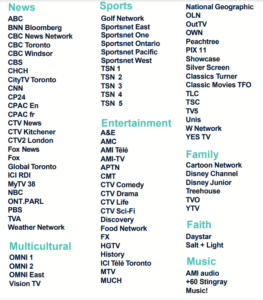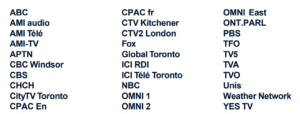
Comparing Fixed Point vs Cable vs DSL Internet for Rural Places – blog
Comparing Fixed Point vs Cable vs DSL Internet for Rural Places
There are many different types of internet service providers (ISPs) out there, offering a variety of services. But what’s the difference between them? In this article, we’re going to take a look at the three most common types of ISPs – fixed point, cable, and DSL – and compare their rural internet options.
What is Fixed Point Internet?
Fixed point internet is a type of broadband internet that uses radio signals to connect your home or office to the internet. Fixed point internet is often referred to as “wireless broadband” because it doesn’t require any physical wires or cables. One of the main benefits of fixed point internet is that it’s very easy to set up. All you need is a clear line of sight between your home or office and the nearest fixed point tower.
If you have a clear line of sight, you can usually get online within minutes. Another benefit of fixed point internet is that it’s very portable. If you move house or office, you can simply take your fixed-point internet equipment with you and set it up at your new location.
One of the main disadvantages of fixed point internet is that it can be unreliable in areas with bad weather. If there’s a lot of rain, snow, or wind, it can disrupt the radio signals and cause your internet connection to drop out.
What is DSL Internet?
DSL (Digital Subscriber Line) is a type of broadband internet that uses a regular phone line to connect to the internet. It’s one of the most common types of broadband in Canada, with around 25% of households using it. DSL speeds can vary depending on how far you are from the nearest telephone exchange, but in general, it’s a fairly fast type of broadband. Most providers offer speeds of around 10Mbps to 25Mbps, which is more than enough for most people’s needs.
What is Cable Internet?
What is Cable Internet? Cable internet is a type of broadband internet that uses a cable TV network to deliver a high-speed connection. One of the main advantages of cable internet is that it’s very fast, with speeds of up to 100Mbps. Another advantage of cable internet is that it’s very reliable, as the connection is not susceptible to bad weather or other interference.
So, which type of ISP is best for rural internet?
The answer depends on a few factors, including your location, your budget, and your internet usage. If you live in a rural area, your best bet is probably DSL or cable. DSL is more common than cable, so it’s likely that you’ll be able to find a DSL provider in your area.
DSL is typically cheaper than cable. If you live in a rural area and you’re on a tight budget, your best bet is probably fixed point. Fixed point is typically the cheapest type of internet service, but it’s not as widely available as DSL or cable.
If you live in a rural area and you use a lot of data, your best bet is probably DSL or cable. DSL and cable have higher data limits than fixed point, so you’ll be able to use more data without having to worry about overage charges.
Final Thoughts
There are a few things to keep in mind when you’re choosing an internet service provider. First, consider your location. If you live in a rural area, your best bet is probably DSL or cable.
Second, consider your budget. If you’re on a tight budget, your best bet is probably fixed point.
And finally, consider your data usage. If you use a lot of data, your best bet is probably DSL or cable. No matter which type of ISP you choose, you’ll be able to find a rural internet option that meets your needs.
Canquest empowers homes and businesses with the best high-speed internet and digital phone service on the market today. Our mission is to provide reliable and affordable communication solutions for people and businesses so you can focus on more important things. If you’re looking for high-speed internet service in Chatham Kent, we’ve got you covered! Get in touch with us today and let us know how we can help!







